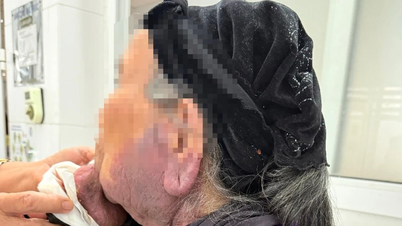Studies show that both type 1 and type 2 diabetics experience hypoglycemia in the evening, especially before bed. There are many causes of hypoglycemia. If not detected early and treated, it can cause many adverse health effects, according to the health information site Everyday Health (USA).

Hypoglycemia will cause fatigue, sweating and rapid heartbeat.
Severe hypoglycemia can cause seizures and even death. The good news is that there are steps you can take to prevent hypoglycemia at night.
Never skip dinner
To keep blood sugar stable, doctors often recommend that patients follow strict eating and living habits. Among them, they must eat a full dinner.
Skipping dinner or having only a light meal is one of the most common causes of hypoglycemia at night, which causes blood glucose levels to drop below healthy levels. It is best for people with diabetes to eat a healthy, balanced dinner.
Avoid heavy exercise close to bedtime
Many working people do not have time to exercise in the morning or afternoon. Therefore, they try to exercise in the evening after work. For diabetics, exercising at this time is nothing to worry about.
However, health experts recommend avoiding over-exercising, especially close to bedtime. This can cause blood sugar to drop very low at bedtime. It is best to exercise at least 2 hours before bedtime.
Check blood sugar before bed
Regular blood sugar testing plays an important role in stabilizing blood sugar and controlling the disease. If blood sugar is too low or too high on a regular basis at this time, the patient should discuss with the doctor to have appropriate adjustment methods.
Early recognition of hypoglycemia
Finally, people with diabetes need to know the common symptoms of hypoglycemia. For example, hypoglycemia can cause shaking, sweating, confusion, and headaches.
If you are sleeping, these symptoms will startle you. However, there are also people who experience a condition called hypoglycemia unawareness, which means hypoglycemia but the patient will not have any symptoms and can only be detected by checking blood sugar, according to Everyday Health .
Source link





![[Photo] Parade to celebrate the 50th anniversary of Laos' National Day](/_next/image?url=https%3A%2F%2Fvphoto.vietnam.vn%2Fthumb%2F1200x675%2Fvietnam%2Fresource%2FIMAGE%2F2025%2F12%2F02%2F1764691918289_ndo_br_0-jpg.webp&w=3840&q=75)





























![[Photo] Worshiping the Tuyet Son statue - a nearly 400-year-old treasure at Keo Pagoda](/_next/image?url=https%3A%2F%2Fvphoto.vietnam.vn%2Fthumb%2F1200x675%2Fvietnam%2Fresource%2FIMAGE%2F2025%2F12%2F02%2F1764679323086_ndo_br_tempimageomw0hi-4884-jpg.webp&w=3840&q=75)








































































Comment (0)